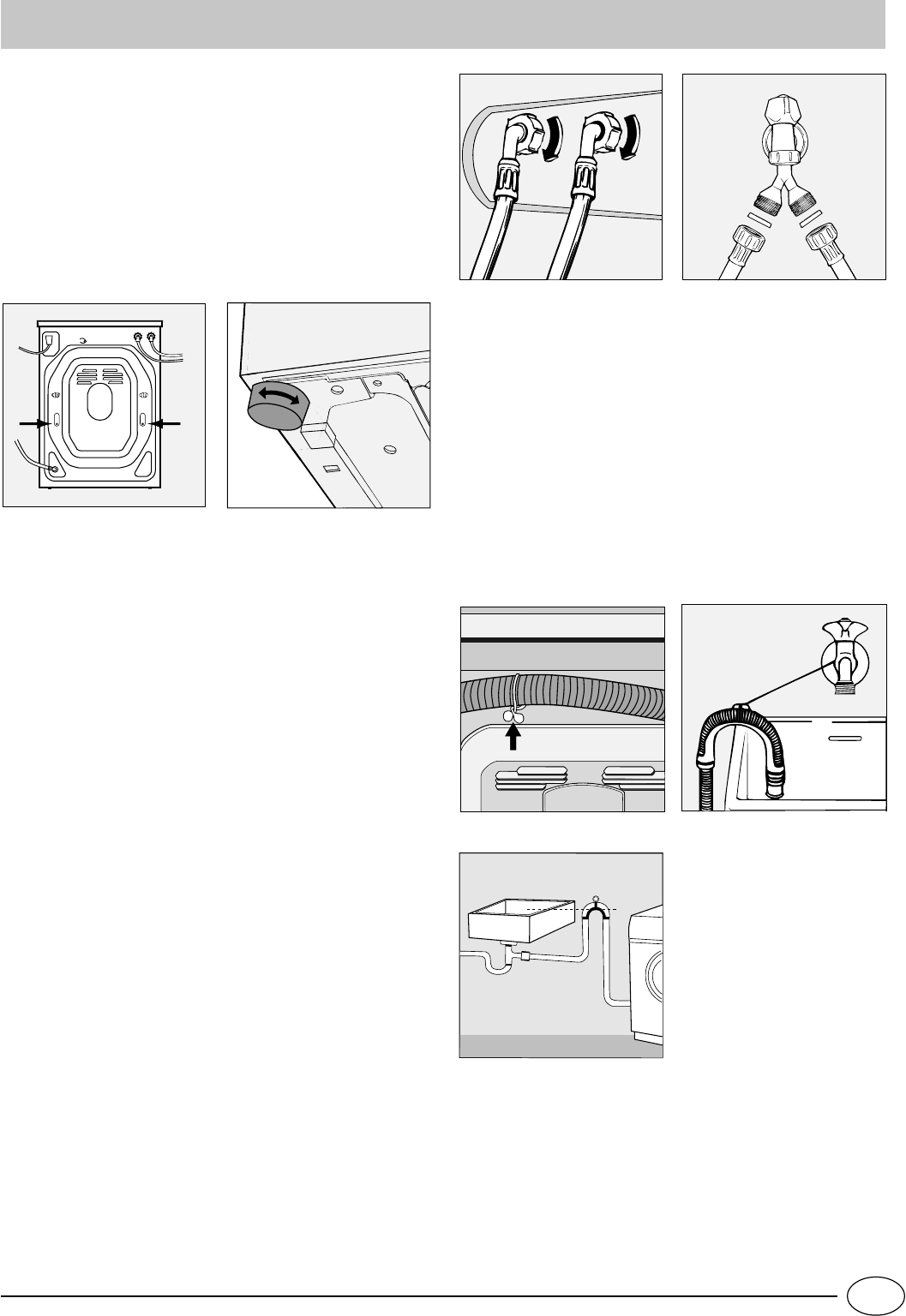
9
GB
Drain hose
The drain hose (hooked pipe) is secured to the rear of the
machine by support clips and may be routed to right or left
as required (see fig. 5). The drain hose should be placed in a
stand pipe with a minimum internal diameter of 38 mm (1½
inches) or it can be positioned over a sink (see fig. 6) or it
can be connected as shown in fig. 7. The height of stand
pipe or sink should be between 60 and 100 cm (24 and 40
inches). Care must be taken that the hose is not obstructed,
twisted, submerged or kinked. If the hose is connected with
an airtight joining, provision should be made to prevent
syphoning.
Installation
Transit packing
After removing the packing, check the appliance for damage.
If you have any doubts do not use the washer and call a quali-
fied technician. Keep the packaging components (plastic bags,
polyester foam, nails etc.) out of the reach of children since
they could be dangerous. The interior of the washer, has an
oscillating unit which is fixed on the back by 2 screws during
transport (fig.1). Before starting up the washer, release the
unit, by unscrewing the 2 screws. Seal the screw holes with
the plastic plugs supplied with the appliance.
Levelling
The washer must be perfectly levelled. To level the appliance,
only the front feet need to be adjusted (see fig. 2); remember
that the inclination of the working surface must not be more
than 2 degrees. If the washer is installed on a carpeted floor,
check that there is sufficient ventilation space between the
floor and the bottom of the washer.
Water supply
Both hot and cold water supplies are preferable and they
should be between 34.5kN/m²(5lb/in²) and 1034.2kN/m²
(150lb/in²) pressure. The hose with the red end piece must
be connected to the hot water supply and the connector
on the back of the appliance (see fig. 3), which is identified
by its red color or marked with the letter H on the side. The
hose with the white end piece must be connected to the
cold water supply and the connector on the back of the
appliance (see fig. 3), which is identified by its white color or
the letter C on the side. Remember to insert a sealing washer
at each connection to ensure watertight joints. Do not
overtighten the connections by using tools -hand tight is
sufficient to prevent leaks. It is generally more convenient to
have these supplies away from the sink taps. Where no
suitable hot water supply is available or it does not meet
these requirements, both inlet hoses may be connected to a
cold supply by using two taps etc., or a «T» junction on the
plumbing (see fig. 4) however, use of cold water only will
increase programme times.
Note: the maximum temperature should not exceed 70°C
(158°F).
Fig. 1
Fig. 2
Fig. 3
Fig. 4
Fig. 5
Fig. 6
Fig. 7














